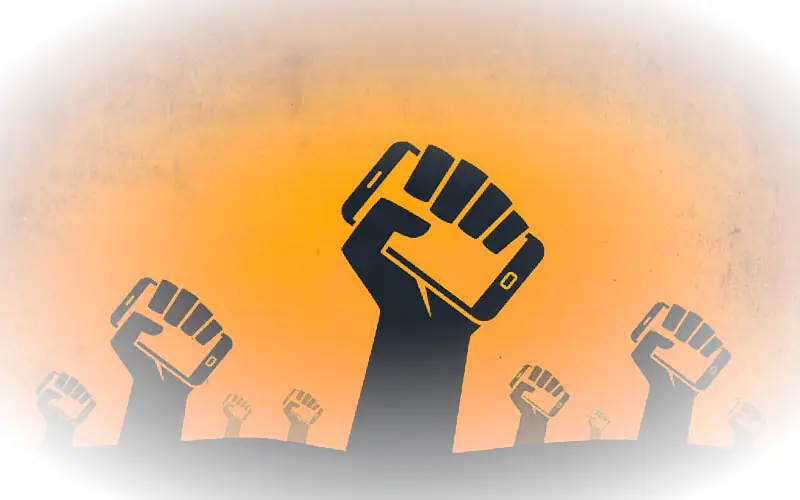When the word “rebellion” strikes our minds, we often conjure up images of a leather-clad, cigarette-smoking biker, or perhaps a defiant, spiky-haired teenager in goth clothes.
These are individuals who wear their nonconformity as a badge of honor, boldly show their discontent for society by challenging the status quo.
But the real question is – does rebellion bring value to our society?
In our complex and multifaceted world, rules occasionally need to be reassessed, laws scrutinized, and the comfort of the status quo shaken to its core.
In this article, we delve deep into the essence of rebellion from a societal standpoint. We seek to unravel whether rebellion is a potent force that spurs societal evolution or simply a disruptor of harmony.
Are our societal norms and structures boosted by rebellious acts of defiance, or do they teeter on the brink of collapse as a result of rebellion?
Let’s Dive In.
“Rebellion” and “Society”
Before we dissect the interplay between rebellion and society, let’s quickly define these terms:
Rebellion, a trigger for change, is the resistance against norms or authority, fueled by dissatisfaction, autonomy, or justice.
Society is the intricate network of relationships, structures, and systems that shape interactions within a community, defined by shared values, norms, and institutions.
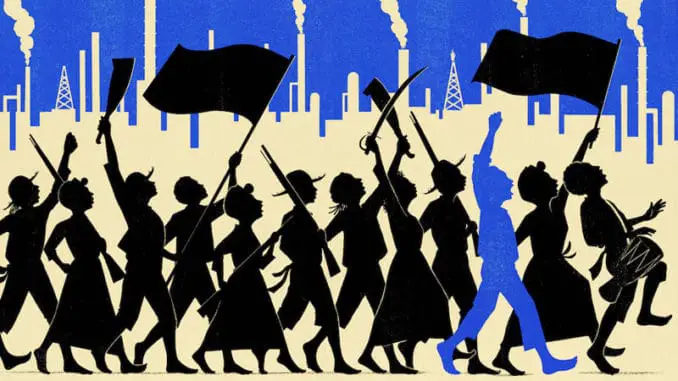
Defining Rebellion:
Rebellion represents a spirit of defiance against established social, political, or cultural norms. It emerges in forms varying from peaceful protests to insurrections, often in response to perceived injustices or curtailed freedoms.
The goal? Disrupt the status quo, stimulate dialogue, and incite change.
Understanding Society:
Society is the complex weave of human interaction, comprising diverse groups and institutions, bound by shared values and norms. It’s built on frameworks like governments, legal systems, and cultural practices, promoting order, stability, and cohesion.
But, it’s not without flaws—power imbalances and injustices often stir rebellious sentiments.
Exploring the dynamics between rebellion and society unravels the intricate balance between the individual and the collective.
This exploration helps us determine whether rebellion is a positive force challenging oppressive structures, thereby spurring societal evolution… Or, if it poses risks of instability and conflict, potentially impacting community well-being.
The Role of Rebellion in Society Pros and Cons
Pros:
Rebellion, as a transformative force within society, can be compared to the pressure exerted by tectonic plates in the Earth’s crust.

Just as these geological shifts lead to the creation of mountains and valleys, rebellion has the potential to reshape societal landscapes.
On the positive side, historical examples such as the American Civil Rights Movement and the Suffragette Movement demonstrate how rebellion can mobilize marginalized groups, challenge discriminatory practices, and bring about significant positive social change.
Rebellion can serve as a catalyst for progress, amplifying voices that were once silenced and dismantling oppressive systems.
Cons:
However, like most powerful forces of humans and nature, rebellion is a double-edged sword that can also result in destructive consequences.

The United States Institutes of Peace (USIP) draws an uncanny parallel to rebellion and the rise of the extremist terrorist group ISIS, displaying that rebellion can, in fact, hold devastating effects on society.
Instances of violent uprisings or radical ideologies taking hold underscore the potential for rebellion to sow discord and division within societies, hindering cooperative efforts and causing long-lasting social fractures.
It’s always essential to assess the underlying motivations, methods, and potential outcomes of rebellious movements, employing a nuanced understanding of their context and impacts to foster constructive change while mitigating the risks of societal upheaval.
The Psychology and Sociology of Rebellion
The Social Psychology of Rebellion: Unpacking the Collective Mind
Rebellion, both from societal and psychological perspectives, emerges from a blend of factors.
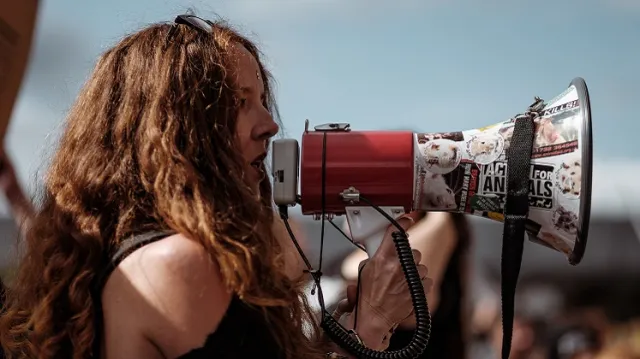
Societal triggers of rebellion, as outlined by Northern Michigan University, often encompass systemic injustices, social inequalities, political repression, and the denial of basic human rights. These conditions can instill feelings of frustration and alienation, creating a perceived necessity for change and the rise of populism among certain societal segments.
On the psychological front, rebellion can be fueled by a longing for independence, the pursuit of personal identity, and a rejection of perceived limitations or oppressive norms.
Jack W. Brehm’s Reactance Theory suggests that when an individual’s freedom of choice is threatened, there is a motivational response to restore or regain that freedom through resistance or alternative actions.
Other significant factors include the need for social recognition, peer influence, and a sense of moral indignation.
In essence, rebellion emerges as a response to the perceived gap between existing social constructs and the envisioned or desired state of affairs, both at a societal level and within the individual psyche.
The Impact of Rebellion on Societal Norms and Behaviors
Rebellion holds the power to stir societal norms and behaviors, challenging established conventions and sparking transformative change.

Take, for instance, the Women’s Suffrage Movement in the late 19th and early 20th centuries. Women across various nations rebelled against the prevailing gender inequality and fought fiercely for their right to vote and participate in political decision-making.
Rebellion, by challenging power structures and defying societal expectations, disrupts the status quo and encourages critical reflection, reshaping collective viewpoints. It brings new perspectives to the table, dismantles oppressive systems, and empowers marginalized groups, thus driving societal discourse and advancing social justice.
Societal Structures and Their Response to Rebellion: Evolution or Dissolution?
Evolution of Societal Structures:
Rebellion serves as a change catalyst, pushing societal structures to transform.
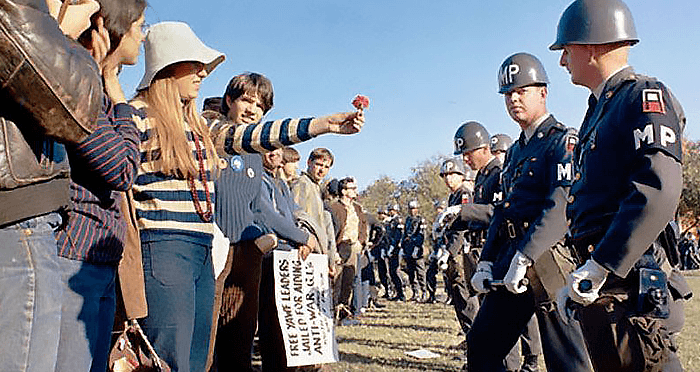
Faced with rebellious challenges, societies can self-reflect, recognize their flaws, and instigate reforms. This process can dismantle oppressive systems, amplify marginalized voices, and create fairer societal frameworks.
Rebellions can propel societal progress, advancing civil rights, gender equality, and other social justice facets. By addressing rebels’ concerns, societies can foster transformative changes, enhancing resilience and maintaining relevance in a dynamic world.
Consider the Civil Rights Movement in the United States during the 1950s and 1960s. This rebellion against racial segregation and discrimination led to significant societal change.
Challenged by these rebellious acts, society was forced to confront its deep-rooted racial injustices. As a result, important legislative changes were made, such as the Civil Rights Act of 1964 and the Voting Rights Act of 1965, which outlawed discrimination and ensured voting rights, marking a significant evolution in societal structures.
Dissolution of Societal Structures:
Rebellion can sometimes push societal structures too far and towards collapse. If these systems resist change and neglect the grievances fueling rebellion, societal unity may decay.

Rebellions can lay bare deep-seated divisions, intensify social conflicts, and devalue established institutions.
An inadequate response to rebellion by leadership can lead to societal fragmentation, a trust breakdown, the disintegration of social ties, and a loss of collective identity.
When rebellion triggers societal disintegration, it leaves a vacuum potentially filled by chaos, extremism, or competing power-seeking factions.
For instance, the French Revolution in the late 18th century serves as an example. The rebellion against the monarchy and social inequality eventually led to the dissolution of the French monarchy, leading to a period of chaos and power struggles before the establishment of a new societal structure.
Historical Context of Rebellion
Rebellion in Ancient Societies: Rome, Greece, and Egypt
Rebellion in Ancient Rome:
In ancient Rome, rebellion was not uncommon, especially during times of political instability. The Roman Republic witnessed several significant uprisings, such as the Spartacus Slave Revolt (73-71 BCE) led by the gladiator Spartacus.
The rebellion posed a serious threat to Roman authority, highlighting the grievances of the enslaved population and the inherent tensions within the Roman social structure.
Additionally, the Year of the Four Emperors (69 CE) marked a period of intense rebellion and power struggles, as multiple claimants vied for control of the Roman Empire.
Rebellion in Ancient Greece:
Rebellion played a prominent role in ancient Greek history, particularly during the city-state era.
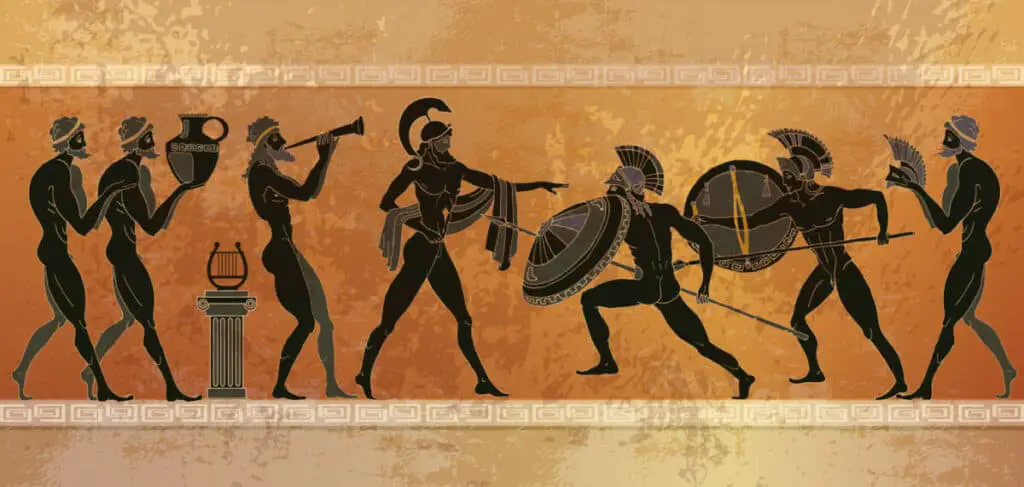
Examples include the Ionian Revolt (499-493 BCE), in which Greek city-states in Anatolia rebelled against Persian rule, and the Peloponnesian War (431-404 BCE), a conflict between Athens and Sparta that involved rebellions by subject states.
These rebellions reflected the complex dynamics of power, rivalries, and aspirations for autonomy among the Greek city-states.
Rebellion in Ancient Egypt:
In ancient Egypt, rebellion occurred periodically throughout its long history. One notable example is the Rebellion of the Workers (c. 1156 BCE) during the reign of Ramesses III.
The uprising was fueled by grievances related to labor conditions and wages, highlighting the socioeconomic tensions within Egyptian society.
Another instance is the Rebellion of Thebes (c. 206 BCE), where the city of Thebes rebelled against Ptolemaic rule, signaling resistance to foreign domination.
High-Profile Rebellions in Recent History
American Revolution (1775-1783):
The American Revolution marked a turning point in world history, as thirteen American colonies rebelled against British colonial rule, seeking independence.
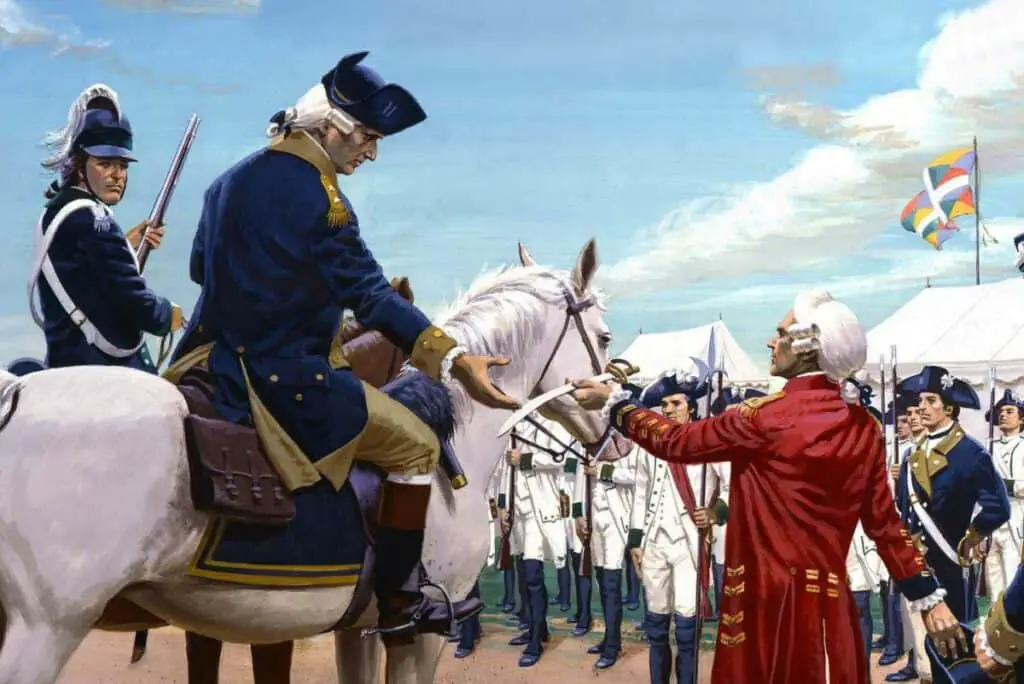
Driven by ideals of liberty, equality, and self-governance, the revolutionaries fought for their rights and autonomy.
The rebellion culminated in the Declaration of Independence in 1776 and the subsequent formation of the United States of America.
The American Revolution not only established a new nation but also inspired future revolutionary movements worldwide, shaping the course of modern democratic ideals.
French Revolution (1789-1799):
The French Revolution was a seismic rebellion that unfolded in France, driven by socioeconomic inequalities, political oppression, and calls for equality and democracy.
The revolutionaries sought to overthrow the monarchy, leading to radical changes in French society. The revolution witnessed the rise of factions, violent upheavals, and the Reign of Terror.
Ultimately, it resulted in the end of the Bourbon monarchy, the establishment of the First French Republic, and the spread of revolutionary ideas across Europe.
The French Revolution had a profound impact on notions of citizenship, human rights, and the reconfiguration of power structures.
Civil Rights Movement (1950s-1960s):
The Civil Rights Movement in the United States was a pivotal rebellion against racial segregation, discrimination, and systemic racism.
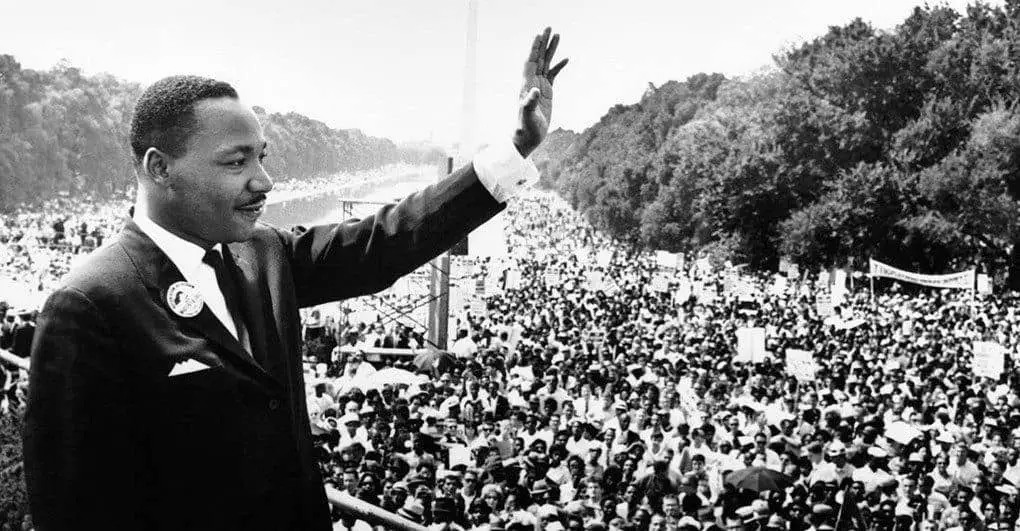
Led by African American activists and supported by allies from various backgrounds, the movement fought for equal rights, desegregation, and voting rights.
Through nonviolent protests, sit-ins, and powerful speeches, figures like Martin Luther King Jr. and Rosa Parks challenged the social norms of racial inequality.
The movement resulted in significant legal and social changes, including the Civil Rights Act of 1964 and the Voting Rights Act of 1965, which dismantled institutionalized segregation and expanded civil rights protections for African Americans.
Rebellion and Its Economic Implications
| Effect of Rebellion | Implication | Example |
| Disruption of economic activities | Immediate and direct economic costs | Temporary shutdowns of businesses |
| Impact on investment climate | Discourages domestic and foreign investment | Political and social environment instability |
| Increased government expenditure | Resources diverted from other sectors | Increased spending on law enforcement, security measures |
| Social and economic reforms | Long-term economic benefits | Larger, more productive workforce; efficient use of resources |
| Changes in economic inequality | Can affect distribution of wealth and income | Policy changes aimed at reducing economic inequality |
| Labor Movements (19th-20th centuries) | Significant economic changes | Establishment of labor laws, minimum wage, recognition of trade unions |
Analyzing Rebellion’s Impacts on Our Future Society
Rebellion, a complex and nuanced phenomenon, often propels social progress while simultaneously posing risks.
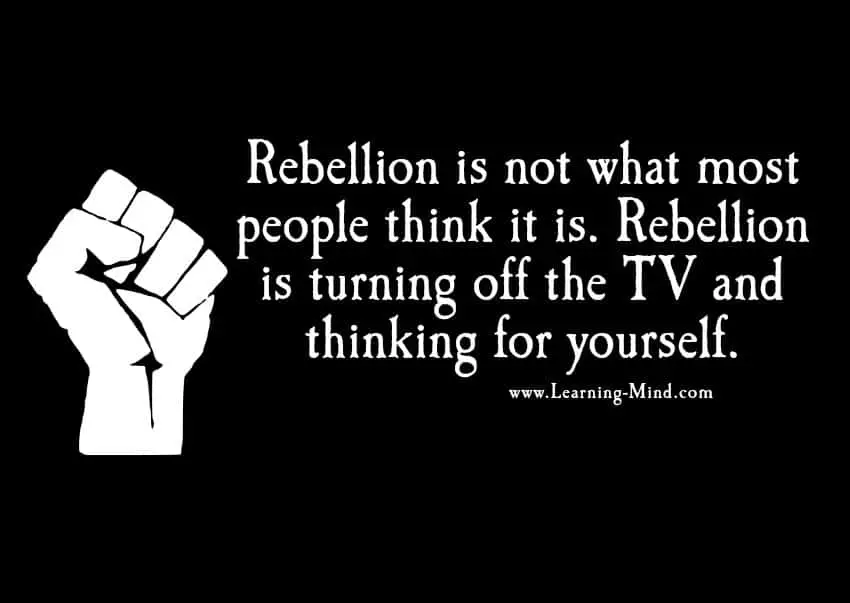
It enables marginalized voices to challenge oppressive systems, potentially leading to social transformation. However, it can also provoke upheaval and instability.
The delicate equilibrium between these outcomes is shaped by factors such as the objectives of the rebellion, the methods employed, and the long-term consequences considered.
As we peer into the future, the course of rebellions will be increasingly influenced by technology and emergent societal issues.
The role of social media in shaping and promoting rebellions will continue to grow, offering both opportunities for widespread mobilization and challenges related to control and censorship.
A prime example is China’s Golden Shield Project, also known as the Great Firewall of China, one of the world’s largest censorship systems. It demonstrates how governments can attempt to regulate online dissent and control the information landscape, limiting dissent and guiding public sentiment within the digital sphere.
In the coming years, rebellions are likely to pivot towards issues such as climate change and digital rights, leveraging non-traditional methods for advocacy and action.
While rebellions hold the potential to drive meaningful change, they also bear the risk of societal polarization and disruption.
Navigating this complex terrain will necessitate fostering open dialogue, safeguarding civil liberties, and addressing systemic injustices to build a resilient and equitable world.
Final Thoughts: Reflections on Rebellion and Society
Rebellion can be seen as a vibrant spark that disrupts the status quo and propels societies towards evolution.
It represents a fearless stand against injustice and a rallying call for social equity. However, rebellion is far from a smooth journey. It’s a dynamic ride through unexplored landscapes, a complex whirlwind of challenges and unpredictability.
Striking the right balance between fostering change and maintaining stability can feel like a high-wire act with high stakes.
Drawing lessons from historical rebellions, it’s essential to dive deep into their root causes and confront systemic issues directly. This journey is about dismantling barriers, fostering diversity, and unlocking the potential of open, constructive conversations.
Loved what you read?
Hit that share button and let the world in on the secret – we’d be thrilled!
Got thoughts? We’re all ears for your feedback, corrections, or a good old chat. Don’t be shy; drop us a line.
And hey, don’t miss out on our curated list of must-reads in the recommended books section.
Big thanks for diving in with us today!


